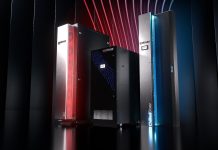As data centres comprise a high proportion of an organisation’s power consumption, and UPSs are major components within them, optimising UPS efficiency can contribute significantly to an effective green strategy. However, this efficiency objective can conflict with the equally critical need for very high availability within Tier lV installations.
So, how can mission critical sites balance these imperatives effectively? As part of a series of video interviews, Mission Critical Power asked Kohler Uninterruptible Power’s Alex Emms: what needs to be done to ensure resilience and efficiency of UPS technologies?
In this video, Alex Emms highlights the catastrophic impact that even a temporary shut down can have and discusses alternative ways to provide resilience through high quality, continuous power.
|
UPS handbook: an essential guide This handbook is a must read for any engineer, facilities manager, specifier or project manager involved in take care of and buying a UPS solution. As the industry’s original UPS handbook, this edition is easy to read and an invaluable reference tool. It provides an up-to-date, in-depth explanation of UPS technology, how to specify a UPS and how to plan for a UPS installation.
Introducing UPS Topologies An interesting chapter is UPS Topologies where Kohler Uninterruptible Power explains the several categories of static UPS systems available and how the UPS units and modules fall within one of the three operation design architectures, namely off-line interactive and on-line.
Introducing Parallel UPS Systems In this section of The Handbook you can learn how to maximise the power security and flexibility of a UPS system with the installation of a ‘parallel module’ system comprising several UPS modules operating in synchronisation with their outputs connected together to provide a common load.
|



